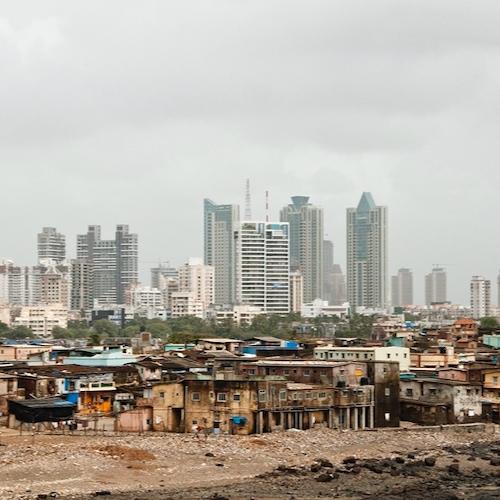Dramatis Personae
Heitor: a 13-year-old boy
Mr. Gomes, his father: a waste handler, working at a garbage dump
Ms. Gomes, his mother: a dry cleaner, working from home
Mr. Barbosa, his uncle: a groundskeeper, working for Belmond Copacabana Palace
Arthur: a 12-year-old boy
Mr. da Silva, his father: head of a Notary Office
Ms. da Silva, his mother: a housewife
Security Guard
Act 1
Scene 1: Belmond Copacabana Palace, Morumbi. Outside the building, alongside the green lawn.
(Mr. Barbosa and Heitor, with their garden tools.)
BARBOSA: Heitor, remember to behave yourself. Your job does not come easy. If you make a mistake, both of us will be kicked out.
HEITOR: Yes, uncle. I’ll work hard as a bee. But uncle, look, such beautiful green lawn! I wish I could play football on it!
BARBOSA: Heitor! I told you to behave yourself! Now, stop daydreaming and start to wor
(Mr.Barbosa walks away. A few minutes later, a football falls from the balcony of the nearby residential building and lands in front of Heitor.)
HEITOR (looking up in the sky): Where is this football from?
(Arthur comes down from the building, searching for his football.)
HEITOR (approaching Arthur, with the football in hand): Is this yours? It almost hit me.
ARTHUR (getting the football from Heitor): Yes! Sorry! I was kicking the football on my balcony, and it fell down.
HEITOR: Never mind. Why don’t you just play it in the park? I always play there.
ARTHUR: I can’t, I have to take a violin lesson one hour later. I don’t have time to go to the park, so I can only play football at home. Why do I never see you in the park if you play there often? Do you mean the park near Albert Einstein Israel Hospital?
HEITOR: No. I don’t live here. I work here in the summer. I help my uncle with gardening and earn some pocket money. I play in the park in Paraisópolis, our Comunidade.
ARTHUR: Where is Paraisópolis? I’ve never heard of it.
HEITOR: It’s not far away. In fact, it’s near Morumbi, your home.
ARTHUR: Really? OK, I’m out of touch. Can we be friends? My name is Arthur. We can play football together afterwards.
HEITOR: Sure, we are friends now! My name is Heitor.
ARTHUR: Do you want to come up for a cola?
HEITOR: My uncle wants me to work. But, well, let’s have a cola anyway.
Scene 2: Belmond Copacabana Palace, Morumbi. Inside the building.
(Heitor and Arthur in the hall of the building. Heitor has garden tools in his hands)
SECURITY GUARD (to Heitor): Boy, do you work here? Show me your identification tag before you go in.
ARTHUR: He is my friend.
(The Security Guard nods. Heitor and Arthur walk to the elevators.)
HEITOR (pointing to the tags on the wall): Why are there tags for the elevators?
ARTHUR: The “social” one is for our friends and us. The “service” one is for the servants. Our cleaners, cooks, and maids use that one.
(The elevator arrived, Heitor and Arthur walked in.)
Scene 3: Belmond Copacabana Palace, Morumbi. Inside the building. Arthur’s home.
(Heitor and Arthur have a lot of fun playing together. One hour later, Heitor leaves. He sits down to have lunch with his parents)
DA SILVA: Where is your friend from? Why does he bring garden tools with him?
ARTHUR: Heitor is from Paraisópolis.
DA SILVA: Paraisópolis? The slum? People from Paraisópolis are thieves, beggars, and drug dealers. You should stop playing with them.
ARTHUR: Dad, Heitor is my friend. He is a good person.
Act 2
Scene 1: A hut in Paraisópolis. Heitor’s home.
(The same day. Ms. Gomes is cleaning clothes under a dark lamp. Mr. Gomes and Heitor are sitting at the table. They are surrounded by recyclable waste collected from the dump.)
GOMES: Heitor, it is your birthday today! Guess what your mom and I got for you? A Madrid shirt!
HEITOR (taking over the gift): I can’t believe this! I love you, mom and dad! I’ll put it on tomorrow to play football with my new friend.
Act 3
Scene 1: The security checkpoint at the park near Albert Einstein Israel Hospital
(One day later. Heitor is waiting. Arthur approaches.)
ARTHUR: Hey, Heitor!
HEITOR: Hey, Arthur! I’ve been waiting for a while. The park is surrounded by high walls, and the security officer won’t let me in without you since I do not live here.
ARTHUR: Now, we can go in. (Touching Heitor’s shirt) Wait! You wear a limited-edition Madrid shirt? I also have one! It’s the same as yours! (Surprised) Wait! It is mine! Look, my name, Arthur da Silva, is embroidered on the collar! My mom always asks our tailor to embroider our names on the collars or cuffs, so they are unique in the world.
HEITOR: What are you talking about? I don’t know why there is your name on my collar. It’s a gift from my parents. I just got it last night.
ARTHUR: Last night? I knew it! You must have stolen it from my bedroom yesterday! How dare you!
HEITOR (angrily): How dare you call me a thief!
ARTHUR (angrily): I trusted you. I thought you were my friend. My dad was right: you people from Paraisópolis are all thieves!
HEITOR: From now on, we are not friends anymore!
(Heitor leaves.)
Scene 2: A hut in Paraisópolis. Heitor’s home.
(Heitor is crying. Ms. and Mr. Gomes are comforting him)
HEITOR: Dad, where did you get this shirt? Why is my friend’s name on it?
GOMES: I found it in a garbage bag at the dump. I cannot afford a Madrid shirt.
GOMES: Yes, your dad got it from the dump, and I cleaned it. You know, many things in our home are from the dump.
HEITOR: I see. Arthur misunderstood the situation.
Act 4
Scene 1: A hut in Paraisópolis. Heitor’s home.
(A few days later. Heitor is doing homework. Ms. Gomes is cleaning a trench coat. Mr. da Silva is organizing the waste he brought from the dump.)
GOMES (holding a diamond necklace): Oh my God. Look what I’ve found!
GOMES (surprised): A necklace! Where is this from?
GOMES: I found it in the pocket of the coat that I am cleaning. It must be the possession of a lady living in Morumbi. You know, all the clothes I clean are from Morumbi.
GOMES: Yes, because your work is outsourced by a chain laundry shop, and they only accept clients from Morumbi and provide them with “high-quality service”.
HEITOR (looking at the coat Ms. Gomes is cleaning): I seem to have seen this coat somewhere. Oh! I remember. I saw Ms. da Silva, Arthur’s mom, wearing it. Is there a name on the collar of that coat?
GOMES (checking the collar): Yes, it says Maria da Silva
HEITOR: Then it must be hers. Give the necklace to me. I’ll return it back tomorrow.
GOMES: But you said Arthur called you a thief?
HEITOR: Yes, he did. Although Arthur and I are not friends anymore, we should show them we are honest people.
GOMES: You’re a good boy, Heitor.
Scene 2: Belmond Copacabana Palace, Morumbi. Outside the building, alongside the green lawn.
(Heitor is waiting. Arthur sees him and approaches.)
ARTHUR: What are you doing here?
HEITOR (Showing Arthur the necklace): Arthur, I think this is your mom’s. My mom is a dry cleaner. She found it in the pocket of a coat. I know that coat is your mom’s because I found her name on the collar.
ARTHUR (Taking over the necklace, surprised): That’s unbelievable.
HEITOR: Besides, I know why there is your name on my shirt. My dad got it from the garbage dump. You must have thrown it away.
(Heitor leaves. Arthur is stunned.)
Scene 3: Belmond Copacabana Palace, Morumbi. Inside the building. Arthur’s home.
(Arthur enters. Mr. da Silva is reading the evening newspaper. Ms. da Silva is watching TV.)
ARTHUR (Holding the necklace): Mom, is this your necklace?
DA SILVA: Yes. Why do you have my necklace?
ARTHUR: My friend, Heitor’s mom, is a dry cleaner, and she found it in your coat that you sent to be cleaned. Heitor returned it to me today.
DA SILVA: Oh, I must have accidentally put it into the pocket and forgotten about it. Do you mean your friend from the slum returned it? I’ll have to check with the jeweller to see if this is really my diamond necklace and not a fake. And I will complain about this laundry. How dare they let someone living in the slum clean our clothes?
ARTHUR: And my shirt. Have you thrown away my Madrid shirt?
DA SILVA: Your Madrid shirt? I threw it away because you’ve spent a lot of time playing football. I want you to spend more time practising the violin!
(Upset, Arthur rushes downstairs to find Heitor, but Heitor has gone…)
Explanatory appendix
This short story is inspired by Teresa Caldeira’s 1996 article “Fortified enclaves: The new urban segregation” (Public Culture, volume 8, issue 2, pp. 303-328). Caldeira investigated gated communities fortified enclaves, in São Paulo, Brazil, and compared São Paulo with Los Angeles. In my short play, I focus on the psychological reasons that lead to the creation of walled communities and the effects they cause on the communities. I especially tried to convey an idea that the original article did not elaborate on: although the fortified enclaves are segregated from the lower-class communities, their operation and function are, in fact, dependent on people living in poverty.
There are two psychological reasons why the upper and middle-class might want to be segregated from other communities. On the one hand, the wealthier demand “total security”. In urban space, especially in cities with high levels of inequality, there often exists a widespread perception that insecurity comes from low-income classes. For example, in the play, Mr. da Silva wants to stop Arthur from playing with Heitor because he believes that people from Paraisópolis are ‘thieves, beggars, and drug dealers’. Similarly, the security guard requires Heitor to show an identification tag before he can enter the residential building, and he cannot access the park near Albert Einstein Israel Hospital due to the security officer there not letting non-residents in. Those all show the urban fear of the rich and their desire for a sense of control and protection over their surroundings. On the other hand, gated communities are also somewhere where the wealthier display their higher status. Segregation also means social distinction, and fortified enclaves minimize the contact among people of different classes, ethnic, and racial backgrounds in ways that reinforce difference. There are for example two elevators in the residential building, separate for residents and their servants. At the same time, however, they are in the same hall, and the residents and servants are still not strictly segregated, which demonstrates how the primary intent is to show status rather than security. In depicting these elements, my play seeks to highlight how there is very little to celebrate about gated communities in terms of their effects on cities, as they only reinforce and normalize social inequality and spatial segregation between different communities. The last point I wanted to elaborate on in my play is that although the more affluent communities are gated, their relationship with the lower classes is not entirely cut off. In the play, the clothes of the da Silvas are sent to the high-end laundromat, and the laundromat hires low-cost labour, including the workers in the slums. Besides, the waste produced by the affluent is often re-used and recycled by the poor. Consequently, although the de Silvas do not want to have any contact with the Gomes, they are still inextricably linked to the Gomes, and in many ways, dependent on them.
Featured Image:
This post is part of our second Academic Fiction thread – see Dennis Rodger’s introductory post.





